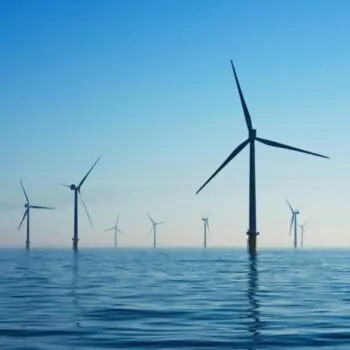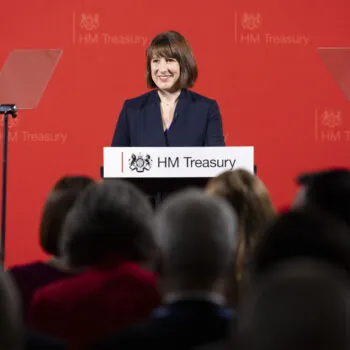As the Chancellor sat down after her Budget speech last week, shock waves rippled across Britain. Certain commentators fulminated over the record £40 billion of tax rises, despite a recent election in which voters overwhelmingly voted for more public spending to restore crumbling public services.
As the political battle unfolded over whether the increase in Employer National Insurance Contributions would affect working people or not, the most economically transformational announcement of the day received far less attention. The new Investment Rule, which allows borrowing for capital investment, will unleash £100 billion of additional investment over the rest of this Parliament.
The biggest chunk of that capital wave will be aimed at developing a net zero energy system. The Climate Change Committee estimates that total public and private investment in the net zero transition has to increase from £10 billion a year to £50 billion a year by 2030 to get on track to our climate targets, helping build the critical infrastructure needed, such as gigafactories, green steel plants and a clean power system.
A new era of clean energy
Ahead of the election, Labour set out a bold mission to make the UK a clean energy superpower and the decision to change the fiscal rules to enable higher levels of capital investment now gives it a plausible pathway to achieve that mission.
Two of the delivery vehicles for this investment are now being set up – GB Energy, the public energy company which was one of the most popular pledges in the Labour Manifesto and the National Wealth Fund – which has succeeded the UK Infrastructure Bank and will help to decarbonise heavy industry. Under the Investment Rule, investments made by these institutions through loans or equity stakes will be fiscally neutral. This could allow the Government to turbocharge them with much more capital.
Global investment is already shifting rapidly towards clean energy and any country that fails to keep up is likely to be left in the wake of this industrial revolution. The UK has been bottom of the G7 league table for investment in 24 out of the last 30 years, holding back growth and living standards. That is about to change.
Investing in the green economy
The benefits of more investment in the clean economy don’t just relate to competitiveness and productivity, as important as they are. Ending consumer addiction to fossil fuels also means reducing the impact of future fossil fuel price shocks. The latter crippled the British economy, led to record energy bills and required an £80 billion bailout for households. Anyone calling for a slowdown in the transition to net-zero should reflect on the immense risks of ongoing fossil fuel dependence, including to political survival.
What matters now is that the government uses this opportunity to invest wisely, while crowding in private investment to support Britain’s booming green economy, which grew 9% last year. A clean energy investment wave focused on renewables, green hydrogen and energy efficiency is the most cost effective and sustainable pathway. A more CCS and nuclear heavy transition would be more costly.
All eyes now move to five upcoming government strategies which will set the foundations for this investment. They cover clean power, industry, infrastructure, homes and an over-arching plan to deliver on the UK’s carbon budgets. Their success will depend in no small part on the required capital being released under the Spending Review and the development of rigorous sectoral net zero investment plans. The Chancellor has now laid the path for this capital investment boost. This has the potential to deliver the economic growth the government so badly craves. The transformation has begun.


